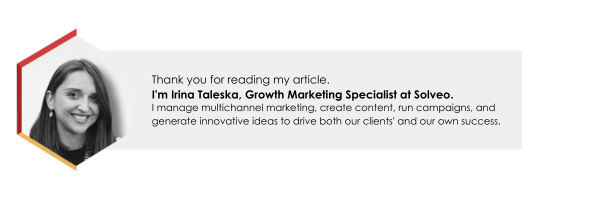Contents
Introduction
Whenever I want to write something, it starts with me having more questions than answers in sight.
Lately, I’ve been wondering:
- Does writing and reading blogs hold the same value in the ChatGPT era?
- Do people still read blogs? How often?
- Who writes better, Humans or AI?
- Does it seem like most of the content we’re reading feels similar to something we’ve already seen before, or is it just me?
So, while I sit staring at a blank page, trying to ignore the fear of an empty Word document and the cursor ticking like a clock, I start researching to find some answers. Luckily, after reading a few articles, I found the report I needed.
The 2024 State of Marketing & Trends Report: Data from 1400+ Global Marketers
- “85% of marketers say generative AI has changed how they will create content in 2024 and 63% say that in 2024, most content will be created at least in part with the help of generative AI.”
- 81% of marketers say content created with generative AI performs the same or better than fully human-created content.
- “Regarding the types of content marketers use generative AI to produce, social media posts, emails, blog posts, topic ideas, images, and product descriptions are the most common.”
Interesting!
Now, let’s get back to my questions. The most important ones!
Do you need to be creative to be a content writer? Is AI enough?
What does it mean to be creative?
Creativity is a fascinating concept. Many think it’s something you’re born with, I believe it’s something you can work on, it’s the willingness to see the world differently. One of my university professors used to say that only an excellent reader can turn into a good writer.
The “artist’s creativity” is more authentic, relying on natural talent. However, developing creativity usually requires dedication, practice, and a unique view of the world. For all kinds of art.
With AI, it seems like everything is changing, even creativity! AI tools are making us all potential artists, giving us new ways to express our ideas. So, does it mean that with the help of AI, all of us are potential artists?
Does having an idea and knowing how to write a good prompt, and then edit the AI-generated content, make you a creative person? Sure, why not! Today, being creative means coming up with ideas, and knowing how to use AI tools effectively. It’s a mix of traditional creativity and modern technology, both equally important in the creative process.
Ideas are the only thing that remains original in the AI era
I often refer to this quote from the American philosopher Cyril Edwin Mitchinson Joad
“Creativity is knowing how to hide your sources”.
Honestly, originality is non-existent! There is nothing you can see, hear, or read that wasn’t already produced by someone else.
So, the thing is to learn how to steal from anywhere that inspires your imagination. Old films, new films, documentaries, blogs, articles, newspapers, music, lyrics, books, poetry, paintings, people, random conversations, architecture, trees, clouds, shadows, dreams… If you listen carefully, all of it can speak directly to your soul. That is how you get inspiration that can awake your creativity.
In any case, always remember what Jean-Luc Godard said: “It’s not where you take things from – it’s where you take them to.” And I say: do it only with style and knowledge! So if we know how to steal (not just copy) from AI, we’re creative!
ChatGPT and how to tell if a blog is written with AI?
Does it really matter if a blog is written by AI or a human? Many people struggle to tell the difference. Writing blogs seems easy nowadays. As we said, you just need an idea, a good prompt, and ChatGPT. Voila, your blog is done!
Is that all there is to it?
Of course not!
There’s more to writing than just putting words together. Quality content requires thought, insight, and a personal touch that AI alone can’t always provide, but it sure takes less time than starting from a blank page. And there is no time to waste time, especially now when we’re producing much more content than ever!
Now, here’s a thought-provoking question that some have inspired me to ask: ChatGPT: shame or pride? 😄
It’s not a secret, we all use it! It’s handy for writing, brainstorming, and getting things done faster. But I’ve noticed some folks keep it under wraps. Funny, because if you use it daily, you can usually spot an AI-generated post (not human-edited) from a mile away. So why hide it? It doesn’t mean you’re handing over all your creativity to it, you had the idea, remember?
Using AI tools like ChatGPT isn’t just about making life easier; it’s about evolving and getting smarter. Learning how to use AI and new tools can really boost your skills and efficiency. Sharing these tools and techniques with others fosters innovation and improvement. By integrating AI into your workflow, you’re amplifying your creativity, not replacing it. So, don’t be shy—explore new tools, read up on AI, and communicate with it daily. The best way to benefit from AI is to become its friend.
Spot the robot!
Ah, AI and its cold heart! Sure can go a bit crazy with buzzwords, clickbait topics and spraying rather than sprinkling the copy with the same words over and over again.
I often think AI writing bots are trained on clickbait articles, as that’s mostly what they produce if you don’t give the right instructions, or improve the text.
Here’s an example generated with a simple prompt, and not human-edited:
🚛 Unleashing the Power of Logistics! 🚛
Ever wondered how your online orders arrive so quickly? Welcome to the thrilling world of logistics! From revolutionary automation and AI-driven inventory management to groundbreaking sustainable solutions with electric vehicles and eco-friendly packaging, we cover it all. 🌱
Imagine the power of blockchain ensuring every shipment is transparent and traceable, while smart warehousing with IoT and sensors revolutionizes operations. 📦🔗
Logistics isn’t just about moving goods – it’s about relentless innovation and exceeding expectations. The future is now, and it’s electrifying!
What’s the most jaw-dropping logistics innovation you’ve seen? Share below! 👇
#Logistics #Innovation #AI #Sustainability #Blockchain
Want to not sound like ChatGPT?
First things first:
- The AI BUZZWORDS! Unlock, Unveil, Discover, Reveal, Transform, Empower, Optimize, Maximize, Leverage, Enhance…STOP THERE. Try to replace them with synonyms, or simply don’t use them in every second sentence.
- Sensational Titles. Promising a lot but delivering less is a common AI giveaway. Keep it simple.
- Occasional Overdramatization
- Not always a natural tone. Keep in mind that writing should feel like talking to someone, telling a story. Simple, warm, and natural. AI-written content may feel mechanical, so give your human touch. Read it out loud and ask yourself: Would I talk to someone this way?
- It uses almost the same formation formula. Try to break it with:
-
- Caps lock words NOW and THEN.
- Misspelling
- Eloongate words (mmmhm)
- Shorten words (ever think bout that? You’ll be champ!)
- Drama dots…
- Humor
- Imperfection
-
- Cliché Transformations. Phrases like “From … this and this … to that and that” are often AI-generated clichés. Rewrite them!
- When AI writes in bullet points, the format usually follows Topic followed by a colon punctuation and then a description.
- AI-generated text is informative but with no passion. Use its brilliance and mix it with your creativity.
For more tips on creating standout content, check out our blog on Authenticity in the Age of AI: Writing Content That Stands Out.
Best content distribution channels
Alright, we’ve brainstormed, researched, crafted the blog, sprinkled in some AI magic, and polished it with a human touch. It’s finally done! Now what? We didn’t do all this work just for our own satisfaction.
We’ve all been there: spending weeks on a piece only for it to get a couple of views. Disappointing, right?
Writing the blog is just the start—it’s all about the audience. The content matters only when someone reads it, discusses it, comments on it, shares it, feels inspired by it, or even dislikes it. Truth is – the reader brings value to your writing by engaging with it.
So, how do you attract your target readers? Where should you share your content?
LinkedIn – Where every role feels royal
- Best for: Establishing yourself as a thought leader, connecting with industry pros, and sharing career-related content.
- Why it works: LinkedIn’s professional environment is perfect for showcasing your expertise through writing articles and engaging comments.
Facebook Groups – Is this still a thing? Yup…
- Best for: Connecting with passionate communities and engaging in deep discussions on specific topics.
- Why it works: Facebook groups offer a focused audience eager to engage with relevant content.
Instagram – hello visual lovers
- Best for: Casual content, storytelling, visuals, and videos
- Why it works: The younger population loves it!
Reddit – Haters gonna hate, but who cares! 😄
- Best for: Sharing your work with a diverse audience and receiving honest feedback. Truly honest, whether you like it or not.
- Why it works: Reddit’s community provides valuable insights and critiques, helping to refine your work.
Twitter – Be brief and have fun
- Best for: Discovering emerging platforms and engaging with early adopters in innovative ways.
- Why it works: X com offers opportunities to experiment with new formats and reach audiences exploring cutting-edge ideas.
Discord – Space for everyone to find belonging
- Best for: Real-time discussions via voice, video or text.
- Why it works: Free communication app used by millions of people there to talk and hang out with their favorite creators, communities, and friends.
Medium – enjoy the spotlight of a writer!
- Best for: Telling your story, and reaching a broad audience interested in detailed, well-researched content.
- Why it works: It is simple, cheap, easy to use, and has a lot of daily readers.
Slack Groups – Connect and Collaborate
- Best for: Instant feedback, knowledge sharing, and building supportive networks.
- Why it works: Cost-effective, integrates seamlessly with other tools, and boasts a large user base across industries, ensuring your messages reach the right audience instantly.
Conclusion
What will happen with blogs, AI, and content creation in the future? Who knows! Some say that all content will eventually be AI-generated, while others predict a future where “100% guaranteed human-made content” becomes the thing. We can only wait and see.
In the meantime, we’re using AI daily, training it, learning from it, and definitely loving it!
That’s why we’ve created the Launch with AI program, tailored for founders and marketers in the early stages of growth. This program is your go-to guide for mastering product launches. Growth experts craft it with a proven track record of working with 500+ startups.
And me? I hope the future brings even better collaboration with AI.


